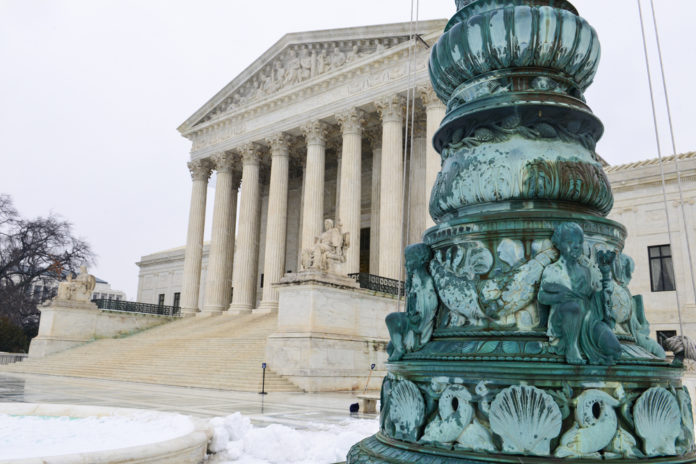President Donald J. Trump has nominated Judge Neil Gorsuch as his choice for the U.S. Supreme Court.
When successful business icon Donald Trump announced his intention to run for president of the United States, many supporters of cannabis reform thought he would be a better choice than this. A man who prominently touts states’ rights and pro-business/job creation views sounded great to some in a community stuck in a decades-long bureaucratic nightmare.
That excitement quickly evaporated as Senator Jeff Sessions was announced as Trump’s pick for U.S. Attorney General. Sessions is known for his public opposition to cannabis. Last year, he compared anyone who uses to cannabis to a child, making no distinction between college-aged thrill seekers and ill patients fighting for some semblance of a quality of life. “We need grown-ups in charge in Washington to say marijuana is not the kind of thing that ought to be legalized, it ought not to be minimized, that it’s in fact a very real danger,” Sessions said on the floor of the U.S. Senate last April.
As many do when the fantasy of governing becomes an unexpected reality, Sessions signaled a much more moderate tone in his confirmation hearing for attorney general. He indicated that he was expected to follow through on the law but noted a limited amount of resources at his disposal to go after dispensaries. Sessions also challenged Congress to pass legislation amending cannabis law if they did not want to see the laws on the books enforced.
Sessions has provided the cannabis community with conflicting signals, and many are unsure of exactly what to make of his comments. Further adding to the mystery is Trump’s choice for the vacated seat on the U.S. Supreme Court. Judge Neil Gorsuch is considered a to be a true conservative, perhaps worthy of filling the seat left by Justice Antonin Scalia in the eyes of conservatives. On the campaign trail Trump said that he would use Scalia as the benchmark for his U.S. Supreme Court choice.
Gorsuch is currently a judge serving the U.S. Court of Appeals for the 10th Circuit in Denver, Colorado. Many of his previous rulings have not sat well with progressive women. However, there is far less clarity on what he believes about cannabis.
Although some might assume that a sitting appellate court judge in Colorado would have dealt with multiple cases involving cannabis law, there are only a few times where Gorsuch has had the opportunity to issue rulings in this area.
Perhaps his most high-profile ruling in the cannabis arena involved Total Health Concepts, a dispensary based in Colorado. Gorsuch ruled that the dispensary had to repay business expenses that were deducted on their taxes. IRS section 280e prohibits dispensaries from claiming tax deductions for their expenses. Total Health argued that it should not be forced to disclose the nature of its business in order to avoid self-incrimination. The company claimed that since the government could not know if their expenses were related to federally banned substances, it should not be prevented from making tax deductions.
Gorsuch denied the motion but cited frustration with the mixed messaging from federal officials. He said that the Obama administration’s signal that they would not target dispensary operators was at odds with the IRS’s policy on dispensaries. Below is an excerpt from Gorsuch’s decision:
This case owes its genesis to the mixed messages the federal government is sending these days about the distribution of marijuana. … They run the business [dispensary] with the blessing of state authorities but in defiance of federal criminal law. … Even so, officials at the Department of Justice have now twice instructed field prosecutors that they should generally decline to enforce Congress’s statutory command when states like Colorado license operations like THC. At the same time and just across 10th Street in Washington, D.C ., officials at the IRS refuse to recognize business expense deductions claimed by companies like THC on the ground that their conduct violates federal criminal drug laws. … So it is that today prosecutors will almost always overlook federal marijuana distribution crimes in Colorado but the tax man never will.”
It is unclear where Gorsuch actually stands on cannabis. While he made it clear that he was no fan of the mixed signals coming from the federal government, he declined to reveal his stance on the issue.
Considering that a seat on the U.S. Supreme Court has remained vacant for almost a year and many are eager to see the nation’s highest court function with its full set of nine justices, Gorsuch’s confirmation could be all but assured. And that leaves more questions than answers for the future of the cannabis community.











